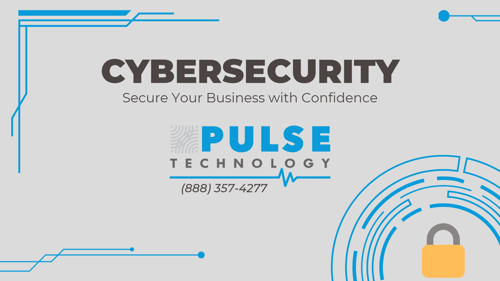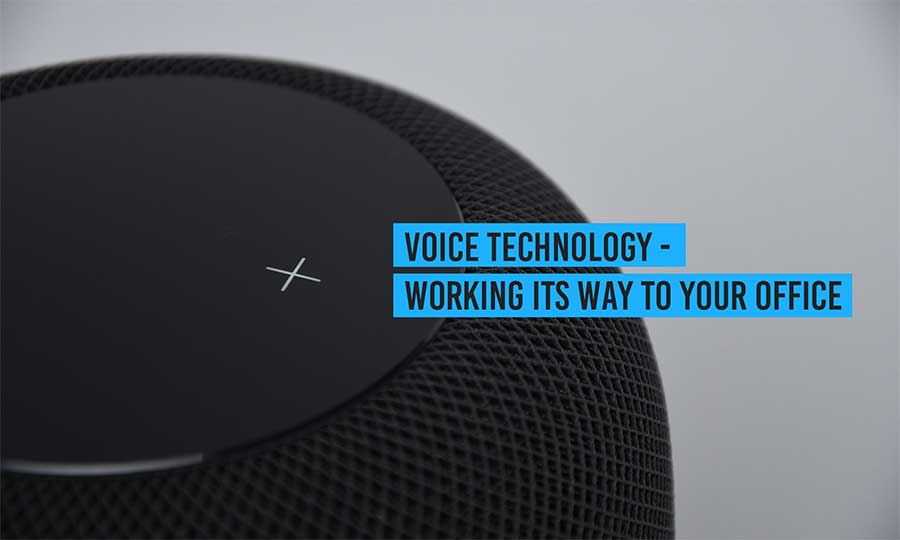Amazon Alexa in the workplace: friend or foe?
Artificial Intelligence (AI) has been in the news constantly lately, as researchers consider its almost limitless applications.
AI is a big topic! In a future blog, we will explore this subject in more detail and look at the many ways AI can help in the workplace. For today, though, let’s examine one well-established type of AI and its potential role in the workplace -- the “Smart Speaker” technology known as Amazon Alexa.
Overall, the use of voice-assisted devices is fairly widespread. A Business Insider tracking report from November 2022 shows Alexa ranking third in the U.S. voice-assistant preferences (71.6 million users), with Google Assistant (81.5 million) and Apple’s Siri (77.6 million).
Although most people think of Alexa primarily as a device for use in the home, Alexa can also be very productive in an office environment.
In a business environment, it’s important that your company’s IT team --internal and/or outsourced – be informed of Alexa units in the workplace. It should go without saying that your company’s infrastructure/IT must be up to date on all the latest cybersecurity measures and that the infrastructure is protected against vulnerabilities.
With that said, Alexa can prove to be very helpful with a number of administrative tasks – scheduling your calendar, providing appointment reminders, operating some of the “smart” equipment in the office and much more. A voice-assisted smart speaker can provide support for those seemingly endless tasks that every worker encounters. And of course, let’s not overlook the value of finding answers to on-the-fly questions that you might have about what a dollar equals in yen, or what the temperature is in Anchorage, Alaska at any given moment.
However, when placing Alexa in service in an office environment, it’s key to think through some potential privacy concerns that could arise.
A Digital Information World article suggests that the “always-on” listening feature, coupled with the vast amounts of data that Amazon collects on users, makes these devices a prime target for hackers. Digital Trends writers advise us that it is not just our computers or smartphones which must be secured, but our Alexa smart speakers must be as well.
Is it likely that a smart speaker would be hacked? A CNBC article from a few years ago rates the chances as unlikely, suggesting that the information a hacker would get from a smart speaker pales in comparison to what’s available by hacking into personal data and getting bank records, for example.
Nevertheless, there are steps that you can take to help safeguard this smart speaker in the workplace and avoid potential headaches.
- Some of the settings that may be programmed for home use will not be appropriate in an office setting. Be sure to either disable your “voice shopping” or at least set up a PIN for an added level of security.
- Turn off your microphone and camera when not using the device.
- Disable your Alexa voice recordings every day.
- Delete your voice recording history.
- Set up a voice profile so that your smart speaker will recognize your voice and be able to distinguish it from others in the office.
- Use headphones so that your co-workers do not have to listen to Alexa replying to your every request.
- Enable “brief mode” on the device which will have Alexa beep rather than reply to each command in a sentence.
- Change the device’s “wake” word from “Alexa” to something else. This will make it less likely that the device can be activated by someone else in the workplace.
- Consider unplugging the unit to avoid any possibility that it will record unauthorized conversations in the work environment.
Your IT provider can guide you through ways to make certain that not only Alexa, but any other devices you bring onto the network operate safely and with minimum risk of troubles. Being proactive will help make Alexa function as your friend in the office, not your foe.
 If you’re looking for assurance that your network is as secure as it can be, or if you have any other questions, please contact Pulse Technology for more information.
If you’re looking for assurance that your network is as secure as it can be, or if you have any other questions, please contact Pulse Technology for more information.



